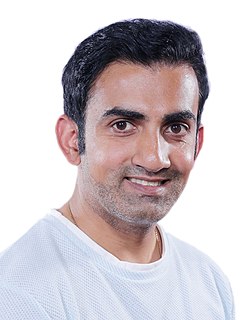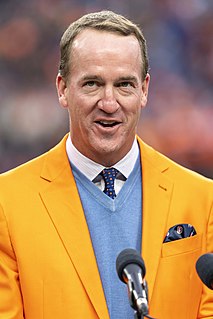A Quote by Immanuel Kant
Parents usually educate their children merely in such a manner than however bad the world may be, they may adapt themselves to its present conditions. But they ought to give them an education so much better than this, that a better condition of things may thereby be brought about by the future.
Related Quotes
If idioms are more to be born than to be selected, then the things of life and human nature that a man has grown up with--(not that one man's experience is better than another's, but that it is 'his.')--may give him something better in his substance and manner than an over-long period of superimposed idiomatic education which quite likely doesn't fit his constitution. My father used to say, 'If a poet knows more about a horse than he does about heaven, he might better stick to the horse, and some day the horse may carry him into heaven'
Each generation is inclined to educate its young so as to get along in the present world instead of with a view to the proper end of education: the promotion of the best possible realization of humanity as humanity. Parents educate their children so that they may get on; princes educate their subjects as instruments of their own purpose.
However we may flatter ourselves to the contrary, our friends think no higher of us than the world do. They see us through the jaundiced or distrustful eyes of others. They may know better, but their feelings are governed by popular prejudice. Nay, they are more shy of us (when under a cloud) than even strangers; for we involve them in a common disgrace, or compel them to embroil themselves in continual quarrels and disputes in our defense.
For what accords better and more aptly with faith than to acknowledge ourselves divested of all virtue that we may be clothed by God, devoid of all goodness that we may be filled by him, the slaves of sin that he may give us freedom, blind that he may enlighten, lame that he may cure, and feeble that he may sustain us; to strip ourselves of all ground of glorying that he alone may shine forth glorious, and we be glorified in him?
It has always happened hitherto that whenever I have begun to feel an attachment to places, persons, or things, of a merely temporary nature, I have been carried away from them. Amen! May I live as a stranger and pilgrim upon the earth. May we be brought to that better country where painful changes are known no more.
Ghosts, we hope, may be always with us - that is, never too far out of the reach of fancy. On the whole, it would seem they adapt themselves well, perhaps better than we do, to changing world conditions - they enlarge their domain, shift their hold on our nerves, and, dispossessed of one habitat, set up house in another. The universal battiness of our century looks like providing them with a propitious climate.
Schools should be democratic public spheres. They should be places that educate people to be informed, to learn how to govern rather than be governed, to take justice seriously, to spur the radical imagination, to give them the tools that they need to be able to both relate to themselves and others in the wider world. I mean, at the heart of any education that matters, is a central question: How can you imagine a future much different than the present, and a future that basically grounds itself in questions of economic, political and social justice?








































